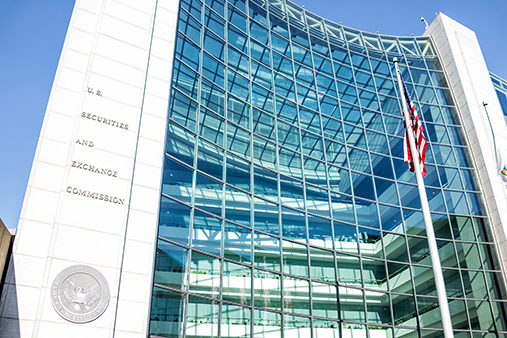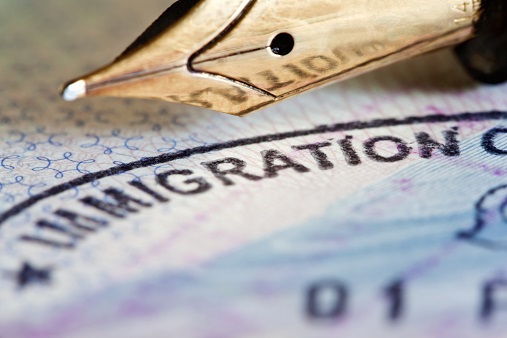Once again, when it comes to patent filings in the Eastern District of Texas, it’s all about location, location, location. In its decision in In re Cray Inc., the U.S. Court of Appeals for the Federal Circuit rejected Judge Rodney Gilstrap’s four-pronged test for determining whether the Eastern District of Texas was the proper venue. In the decision, the Federal Circuit held that 28 U.S.C. § 1400 (b) requires that a defendant have some physical presence in the district in order to satisfy the “regular and established place of business” requirement.
The U.S. District Court for the Eastern District of Texas historically has been a popular venue for patent plaintiffs, but the definition of having a “regular and established place of business” in the district has only recently been tested in court. The Court of Appeals held that under 28 U.S.C. § 1400(b), there are three general requirements that are relevant to determining whether a defendant has a “regular and established place of business” in the district: (1) there must be a physical place in the district; (2) it must be a regular and established place of business; and (3) it must be the place of the defendant. If any of these requirements are not satisfied, venue is improper.
Judge Gilstrap’s holding in Cray and its permissive four-factor test for venue had been viewed as softening the effect of the U.S. Supreme Court’s ruling in TC Heartland.
Background
Venue in patent cases is governed by 28 U.S.C. § 1400(b), which provides that venue is appropriate either (1) in the judicial district where the defendant resides or (2) where the defendant has committed acts of infringement and has a regular and established place of business. The U.S. Supreme Court ruled in May 2017 in TC Heartland v. Kraft Foods Group Brands LLC that the term “resides” refers only to the state of incorporation of the defendant. Thus, for venue to be proper when the defendant is not incorporated in the district, the defendant must have a regular and established place of business in the district.
Cray had sought to transfer a patent suit filed against it in Texas. Cray is a Washington corporation and did not rent or own any office or property in the Eastern District of Texas. Cray did allow two employees to work remotely from their homes in the Eastern District of Texas. After the Supreme Court’s ruling in TC Heartland, Cray then moved to transfer the case for lack of proper venue. Based on the presence of one of the Cray employees in the Eastern District of Texas, Judge Gilstrap held that venue was proper and denied Cray’s motion to transfer. Judge Gilstrap said that “a fixed physical location in the district is not a prerequisite to proper venue”and also articulated a four-factor test for determining whether venue was proper. Under Judge Gilstrap’s test, a physical presence in the district weighed heavily in favor of a finding of venue, but was not required for venue to be proper.
The Federal Circuit’s Holding
Cray petitioned the U.S. Court of Appeals for the Federal Circuit for a writ of mandamus, arguing that Judge Gilstrap had abused his discretion in his interpretation of § 1400(b). The Federal Circuit granted Cray’s petition for a writ of mandamus and held that Judge Gilstrap had abused his discretion in not transferring the case. The panel further held that the judge’s holding that a fixed physical location is not required for venue was in error. The panel rejected Judge Gilstrap’s four-factor test because it was “not sufficiently tethered to the statutory language.”
The Federal Circuit also held that the mere presence of an employee working from home in the district is insufficient to give rise to venue. The panel did not specifically address how the required physical presence can be established. Patent filings in the U.S. District Court for the Eastern District of Texas are expected to fall dramatically against defendants who do not have a physical place of business in that part of Texas.
For more information, contact the Barnes & Thornburg attorney with whom you work or a member of the firm’s Intellectual Property Law Department in the following offices: Atlanta (404-846-1693), Chicago (312-357-1313), Columbus (614-628-0096), Dallas (214-258-4200), Delaware (302-300-3434), Elkhart (574-293-0681), Fort Wayne (260-423-9440), Grand Rapids (616-742-3930), Indianapolis (317-236-1313), Los Angeles (310-284-3880), Minneapolis (612-333-2111), South Bend (574-233-1171), Washington, D.C. (202-289-1313).
© 2017 Barnes & Thornburg LLP. All Rights Reserved. This page, and all information on it, is proprietary and the property of Barnes & Thornburg LLP. It may not be reproduced, in any form, without the express written consent of Barnes & Thornburg LLP.
This Barnes & Thornburg LLP publication should not be construed as legal advice or legal opinion on any specific facts or circumstances. The contents are intended for general informational purposes only, and you are urged to consult your own lawyer on any specific legal questions you may have concerning your situation.
Visit us online at www.btlaw.com and follow us on Twitter @BTLawNews.









/Passle/6488d4630e7e25c9ac9f834a/SearchServiceImages/2024-08-22-21-09-42-814-66c7a9167c25ae3ecd362787.jpg)

/Passle/6488d4630e7e25c9ac9f834a/SearchServiceImages/2024-08-21-16-53-04-583-66c61b702c11c56cda8987a4.jpg)
